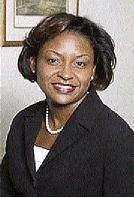
Mcgregor
In an article published on August 4 - An ounce of planning to avoid death duties - I recommended that one way to ensure that all assets are distributed under a will, is to insert a residuary clause into the will. One reader asked two questions which I will set out and answer below.
Question 1: Could you recommend appropriate wording for a residuary clause?
While there is no magic formula, the following words would be adequate:
"I give devise and bequeath all the rest, residue and remainder of my estate, both real and personal, whatsoever consisting and wheresoever situate not hereby specifically disposed of (hereinafter referred to as 'my residuary estate') to . . ."
In the article, I also stated that life insurance policies do not need to be mentioned in a will where there is a named beneficiary. Upon proof of death of the policyholder, the proceeds of the policy is to be paid to the beneficiary.
Question 2: How is a beneficiary likely to know of the existence of a life insurance policy to enable him or her to collect the proceeds?
In the event that the deceased left a will, the executor will usually take that will to an attorney and seek advice. Where the person died intestate (i.e. leaving no will), a spouse or some other close relative will usually report the matter to the Administrator General's Department or seek advice from an attorney.
The first step involves an investigation to ascertain the existence of assets belonging to the deceased's estate. This may include an enquiry to determine whether the deceased had owned any life insurance policies. Depending on the response, the relevant insurance companies will be contacted to verify the existence of the policies.
In some cases, the executor or relative of the deceased may assist in the investigation by providing a recent pay slip which may show that salary deductions have been made in favour of life insurance companies.
It may even become necessary to write to all life insurance companies to establish whether the deceased person had life insurance policies and where they can be found.
The insurance company will usually respond to state:
Whether there is a policy.
Whether that policy has lapsed.
The policy number.
hether there are any named beneficiaries or if the estate is the beneficiary.
The value of the policy.
Where the named beneficiary knows of the existence of the policy, he may contact the insurance company directly. Otherwise, the attorney for the executor or the relative of the deceased may pass on the information received from the insurance company to the beneficiary or the insurance company may opt to contact the beneficiary directly.
Sherry-Ann McGregor is a partner and mediator in the law firm of Nunes, Scholefield, DeLeon & Co. Send feedback and comments to lawsofeve@yahoo.com or Lifestyle@gleanerjm.com.

